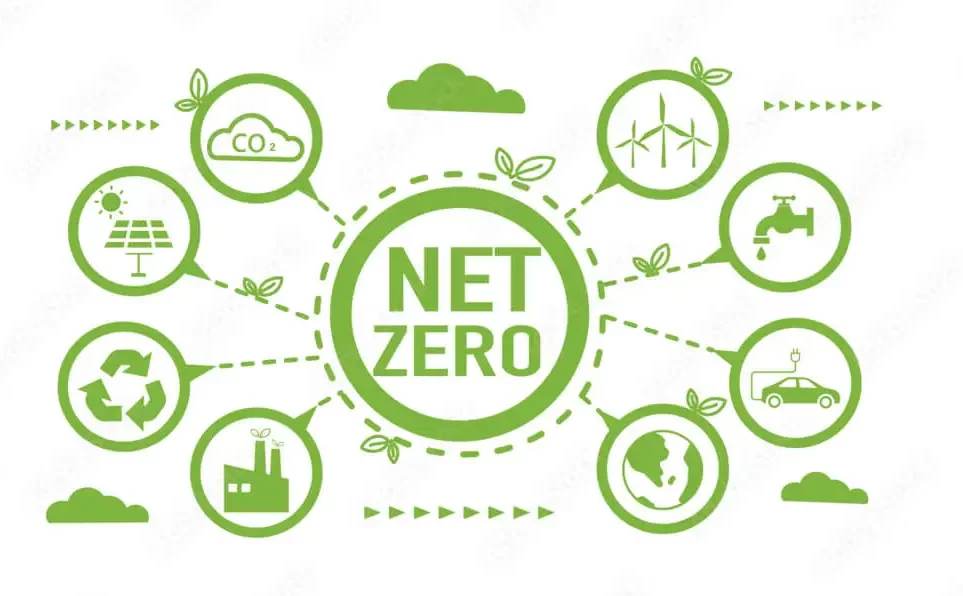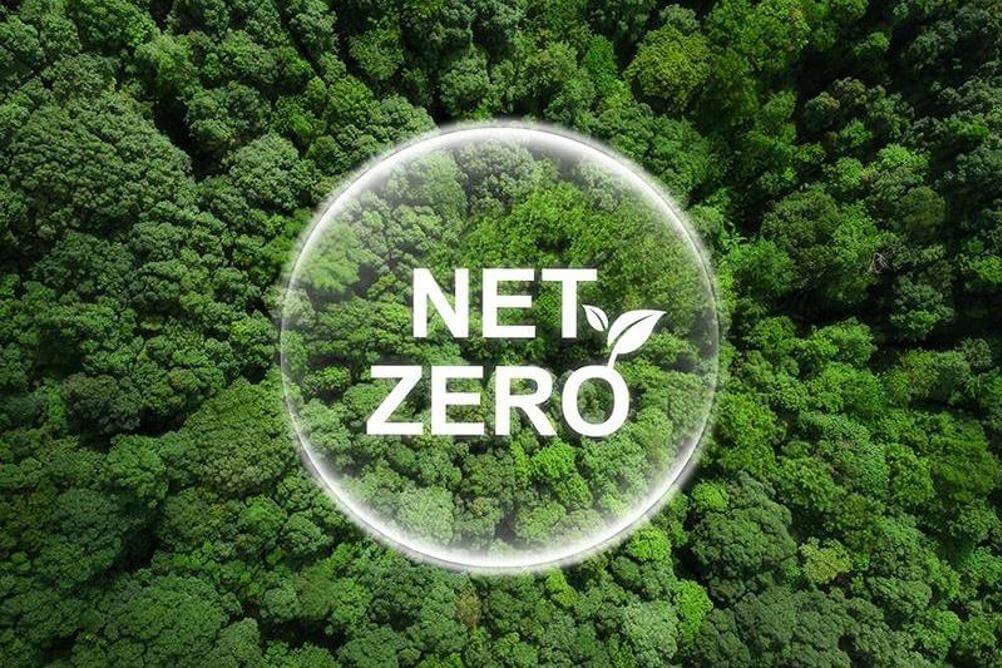
Climate Tech
Key to a green future, climate tech transforms businesses and protects the planet.

Understanding the Impact of Climate Tech

As the world faces the pressing challenges of climate change, the importance of climate tech in mitigating environmental impact and fostering sustainability cannot be overstated. From innovative solutions to reduce carbon emissions to groundbreaking technologies that promote renewable energy sources, climate tech plays a crucial role in shaping a greener future for our planet. In this informative piece, we will delve into the significant impact of climate tech, exploring how it not only addresses environmental concerns but also presents opportunities for businesses to embrace sustainable practices and reduce their carbon footprint effectively. Join us on this journey to understand how climate tech is revolutionizing the way we approach sustainability and environmental stewardship for a brighter tomorrow.
Why Climate Tech Matters

Climate tech is essential because it directly tackles the urgent need to reduce greenhouse gas emissions and slow down climate change. These technologies enable companies and countries to meet their environmental, social, and governance (ESG) goals by offering innovative ways to operate sustainably. For many businesses, climate tech is not just an environmental decision but a strategic one that can lead to cost savings, efficiency improvements, and ultimately a competitive advantage. By investing in climate tech, companies can proactively address the growing demand for transparency in their carbon footprint and sustainability efforts. Moreover, climate tech signifies a commitment to future generations, ensuring that the planet remains habitable and resources are used responsibly. It's a step towards creating a balance between economic growth and environmental preservation, solidifying the role of businesses as stewards of the earth.


Understanding the Role of Climate Tech

Climate tech encompasses a broad range of technologies that contribute to a sustainable future. Its role extends beyond mere tools to combat climate change; it encompasses the systems and processes that help monitor and manage a company's environmental impact. This includes advancements in renewable energy, energy storage, smart grids, and transportation technologies that are less carbon-intensive. Climate tech also plays a pivotal role in data analysis and monitoring, providing businesses with actionable insights into their carbon emissions and resource use. This allows for informed decision-making and strategy development towards sustainability goals. The integration of climate tech into everyday business operations is also instrumental in encouraging a shift in corporate culture, aligning it with global sustainability standards. Essentially, climate tech is the bridge that connects environmental responsibility with technological innovation, enabling businesses to thrive in a low-carbon economy.
Incorporating Climate Tech into Businesses
ESG Criteria Fulfillment
Climate tech helps track emissions, manage waste, and conserve resources, boosting company reputation.
Advanced Analytics and Reporting
Offers tools for detailed sustainability performance analysis, enhancing transparency and credibility.
Leadership in Low-Carbon Transition
Adopting climate tech positions companies as pioneers in the green sector, mitigating environmental risks and fostering innovation.
Sustainability Management Integration
Enables informed decision-making that aligns environmental goals with business objectives, using renewable energies and efficiency technologies.
Cost Reduction
Integrating climate tech reduces energy consumption and waste management costs, contributing to economic efficiency.
New Product Development
Supports the creation of environmentally friendly products and services, meeting the demands of eco-conscious consumers and ensuring long-term business success.

Reducing Carbon Footprint with Climate Tech

Climate tech is pivotal in reducing a company's carbon footprint. By implementing climate tech solutions such as solar panels, smart energy systems, and electric vehicles, businesses can significantly cut down their greenhouse gas emissions. These technologies allow for the optimization of energy use and increase the reliance on renewable sources, thereby diminishing the dependence on fossil fuels. Furthermore, climate tech solutions can be employed to enhance the efficiency of supply chains, from production to distribution, reducing emissions throughout the lifecycle of products and services. The use of software for carbon management also aids businesses in identifying key areas where emissions can be reduced and in tracking progress towards sustainability goals. By reducing their carbon footprint with climate tech, businesses demonstrate their commitment to a sustainable future and can also benefit from financial savings and improved market positioning.
The Role of Carbon Footprint Managers in Climate Tech

Carbon footprint managers play an integral role in the implementation and success of climate tech initiatives within an organization. These professionals are tasked with measuring the environmental impact of company operations and devising strategies to reduce it. By utilizing climate tech tools, carbon footprint managers can conduct comprehensive greenhouse gas inventories, setting a baseline from which to improve. They are responsible for identifying the most effective technologies to deploy in efforts to reduce emissions, such as energy management systems, carbon capture and storage tech, or advanced materials that improve efficiency. Moreover, carbon footprint managers are key in ensuring that the adoption of climate tech aligns with business goals and complies with regulatory requirements. They bridge the gap between environmental stewardship and corporate interests, helping to foster a culture of sustainability within their organizations. Their expertise is crucial for navigating the complexities of carbon accounting and for leading the charge towards a more sustainable future.

Related articles
Ecuador's Zero Carbon Programme is a testament to the country's commitment to sustainability, setting a global example. This guide highlights the program's strategies, benefits, and how businesses can align with these green initiatives.
Global Net Zero Programs leading the charge towards sustainability. From Latin America's innovative policies to the EU's Green Deal, this guide illuminates the path to a greener future for businesses, policymakers, and individuals.
Colombia's Carbon Neutral National Program is a beacon for sustainable transformation, blending ambitious goals with actionable strategies. This guide delves into its impact on businesses and society, showcasing the path to a greener future.
Unlock Net Zero strategies in finance to combat climate change. This guide for finance pros offers a roadmap to sustainability, benefits, and innovation.
The Future of Finance: Banks' Strategic Path to Net Zero Compliance. Discover how banks can lead the charge towards a sustainable future by aligning with the Net Zero Banking Alliance.
The pivotal role of Net Zero in transforming the finance sector towards sustainability. This comprehensive guide delves into actionable strategies, pioneering examples, and the future of banking with Net Zero goals.
Glasgow Financial Alliance for Net Zero (GFANZ): A groundbreaking initiative uniting the world's leading financial institutions in the quest for a sustainable future. Learn how GFANZ is steering the global finance sector towards net-zero emissions by 2050, aligning billions in assets with the goals of the Paris Agreement.
Join the transformative journey with the Net Zero Banking Alliance: A global initiative uniting banks in the fight against climate change. Discover how over $130 trillion in assets are being steered towards a sustainable future, fostering innovation, and driving the banking industry towards a net-zero carbon economy.











